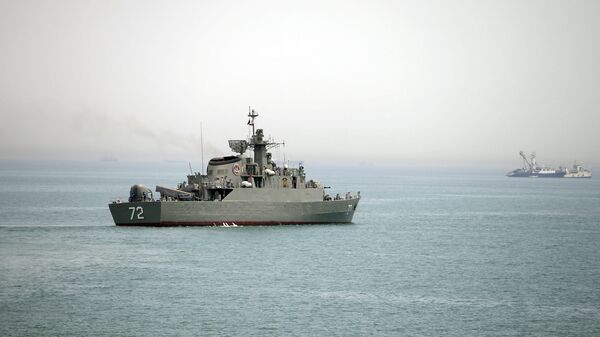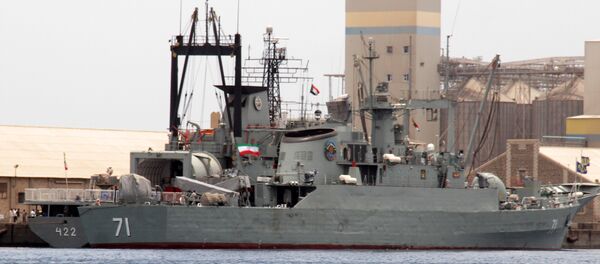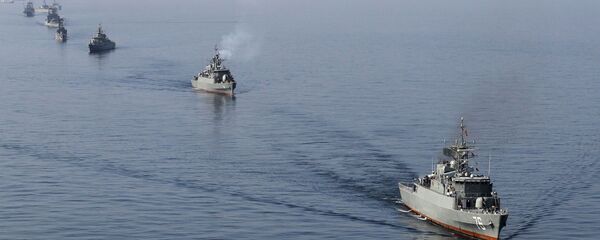The move, which comes amid a crisis in the Persian Gulf after Saudi Arabia, the United Arab Emirates, Bahrain and Egypt cut ties with Qatar for allegedly supporting "extremism," has sparked heated reaction of the Gulf of Aden littoral states.
Iran's news agency Tasnim News reported that the Gulf of Aden littoral states were making deliberate attempts to disrupt the presence of Iranian naval flotillas in high seas.
"Today, the Gulf of Aden littoral states have joined hands to prevent our naval flotillas from docking in there with the purpose of indirectly blocking our presence in high seas and international waters,” it quoted Rear Admiral Habibollah Sayyari as saying in the ceremony marking the start of the 47th Navy flotilla’s mission.
Iran’s Navy, nevertheless, pays no attention to such hostile attempts and will keep a mighty presence in international waters, the commander added.
Sayyari also made it clear that Iranian flotillas pursue two main objectives in their overseas missions: ensuring security of shipping routes and foiling Iranophobia attempts.
The Gulf of Aden, which lies between the Horn of Africa and the southern tip of the Arabian Peninsula, is home to multiple security threats. The ongoing conflict in Yemen between the Saudi-backed government and the Iranian-backed Houthi rebels has led to a number of ships in the area coming under attack.
Meanwhile, pirates in Somalia have been taking advantage of the chaos to launch raids on merchant vessels passing through the area, one of the busiest shipping routes for oil in the world.
Hence, Iran’s Navy has increased its presence in international waters in recent years, conducting patrols in the Gulf of Aden since November 2008, safeguarding merchant containers and oil tankers owned or leased by Iran or other countries.
Sputnik Persian discussed the issue with Iranian political analysts, who noted that the Iranian warships pose no threat to its neighbors. They reiterated that the planned mission is aimed at repelling attacks of the pirates and guaranteeing the safety of merchant ships.
"Iran regards it as its duty to preserve safety of the regional countries, especially in the joint water basin, hence we should not interconnect these maneuvers with any external factors, and with the Qatari crisis in particular," Hossein Ruyvaran, Iranian political analyst, an expert on the Middle East and the Arab world who teaches at the University of Tehran and former director of Iran's regional state TV station in Beirut told Sputnik.
"Thus Iran, alongside other countries, is actively present in these waters and regards it as its international duty to defend this area and safeguard it for other countries, using its military might. The mission of the 47th naval flotilla is by no means interconnected with any external factors and developments in the region, including the Qatari crisis," the political analyst reiterated.
Another Iranian political analyst, member of the Scientific Research Center for International Relations in Tehran, Dr. Mani Mehrabi, noted that the maneuvers of the Iranian warships, which pose no threat to Iran's neighbors, mistakenly raise suspicions and concerns of the regional countries due to increased tensions in the region and recent terror attacks in Iran.
"Iran sends its missions to the high seas and the Gulf of Aden in particular, on a systematic and constant basis. By demonstrating such military might, Iran is sending a peaceful message to its neighbors, who could use this military mission for their own benefits," the political analyst told Sputnik.
Any confrontation with the vessels of the neighboring countries is not on the agenda of the 47th Navy flotilla. However the ongoing crisis in the region and increased tensions amid recent terrorist attacks in Iran have prompted the Arab countries to mistakenly regard any military maneuvers of Iran's Navy as a potential threat of an attack, the expert concluded.






